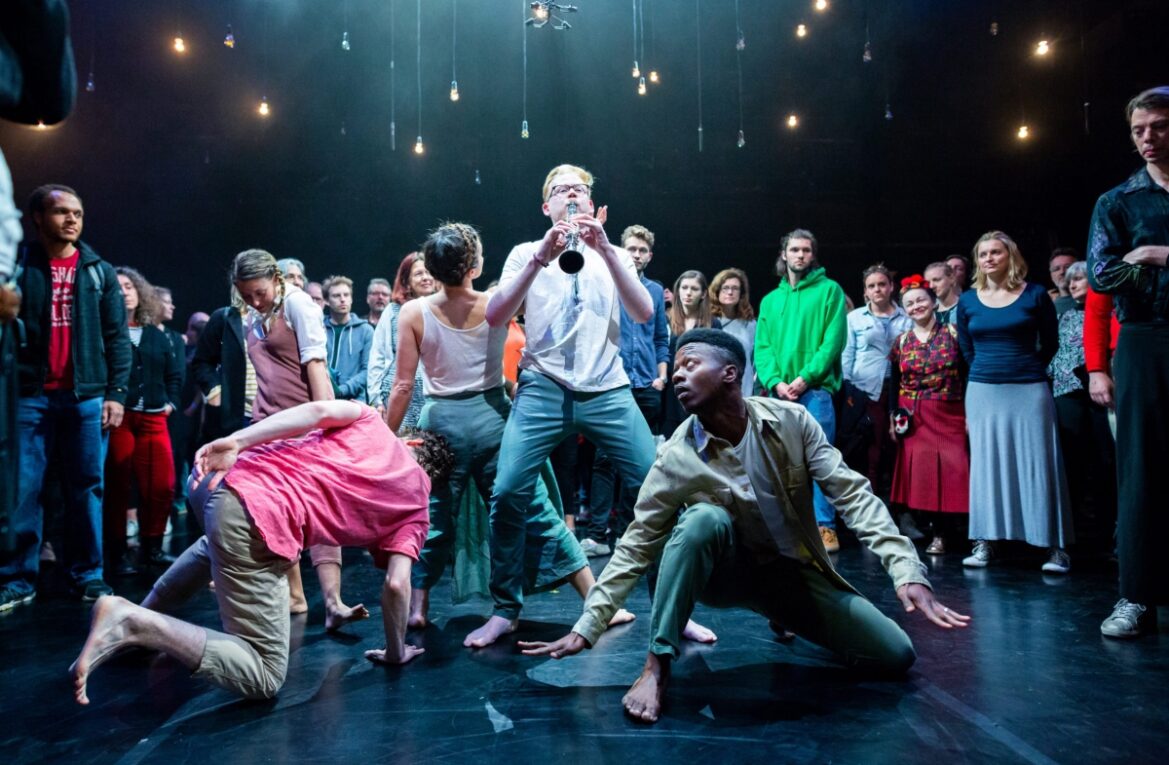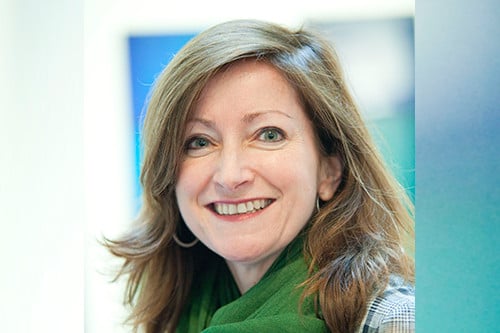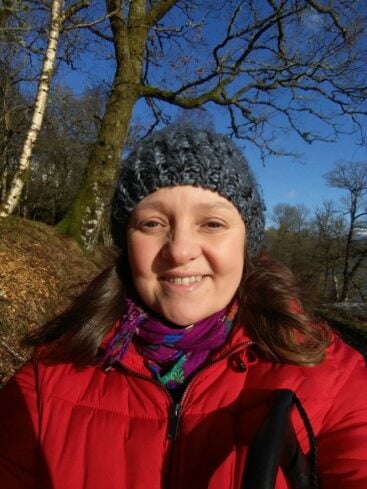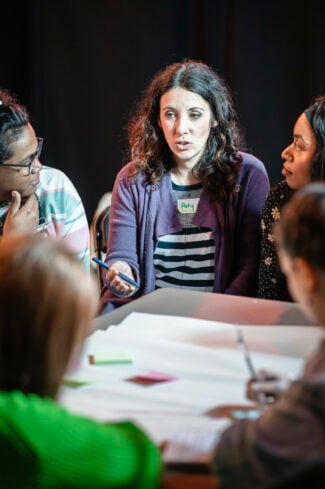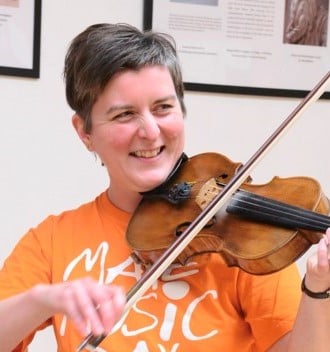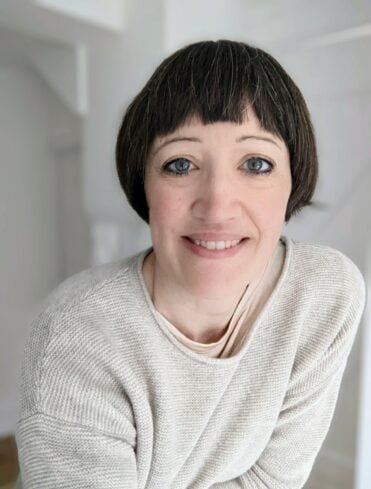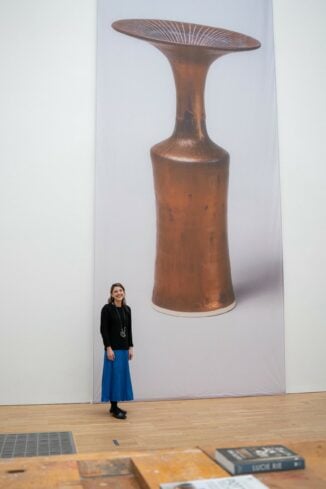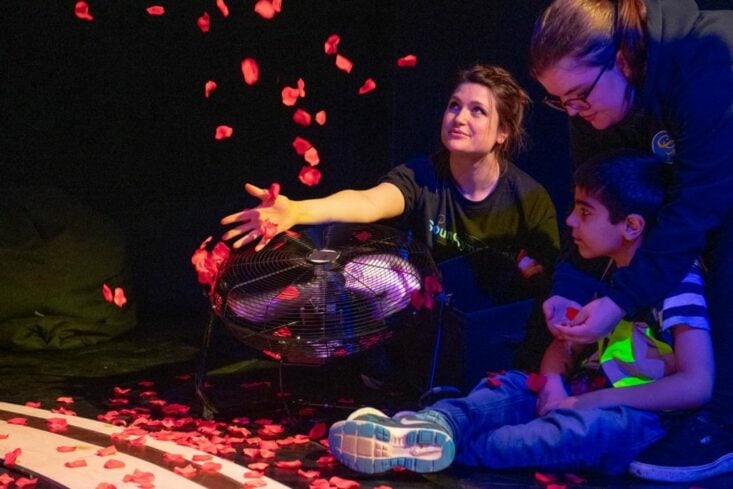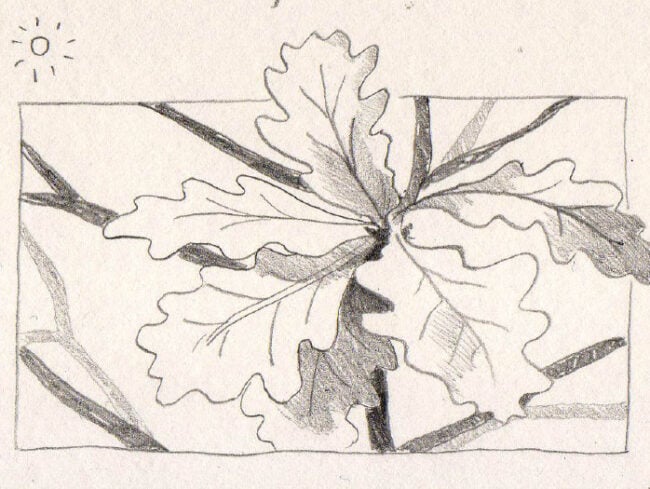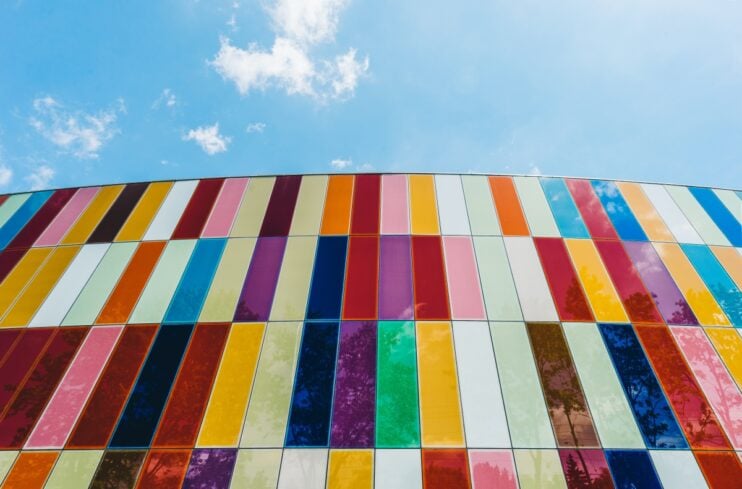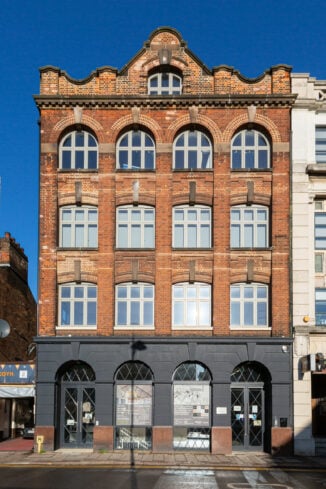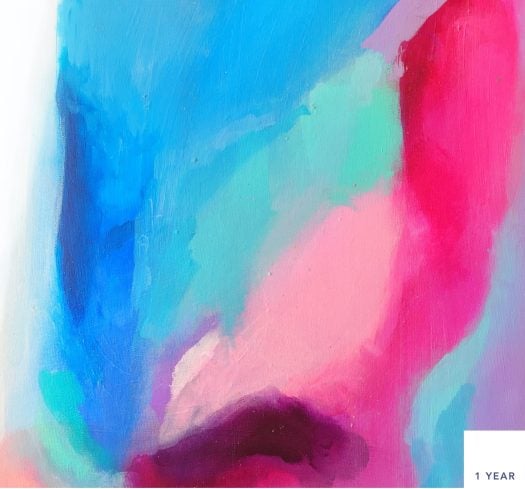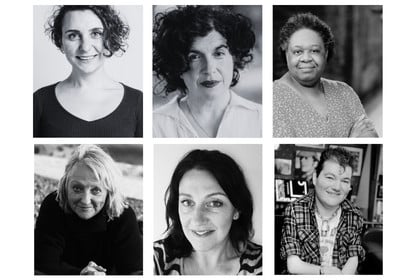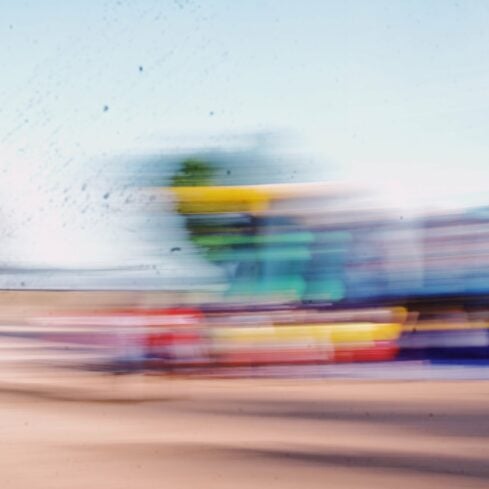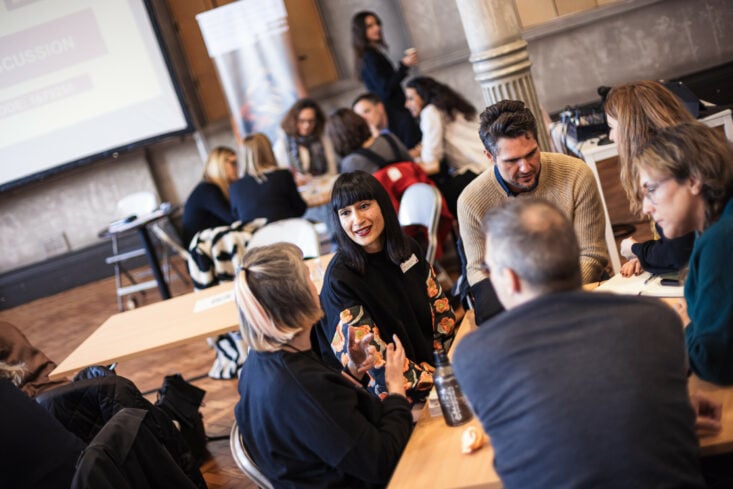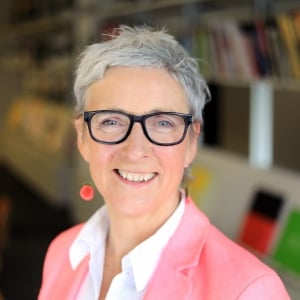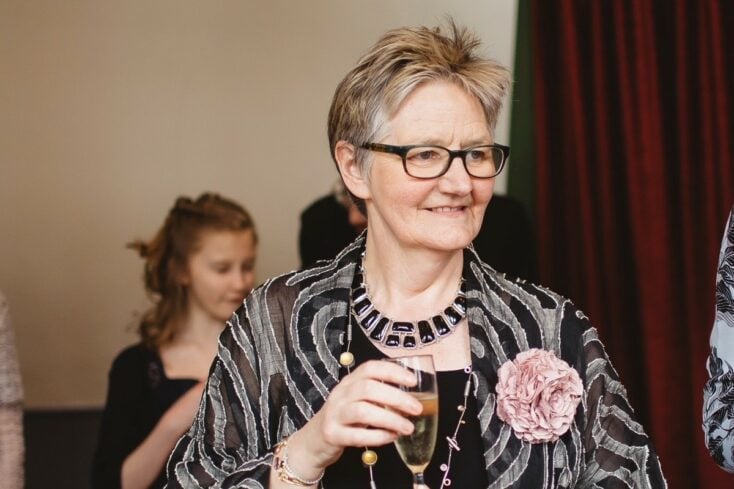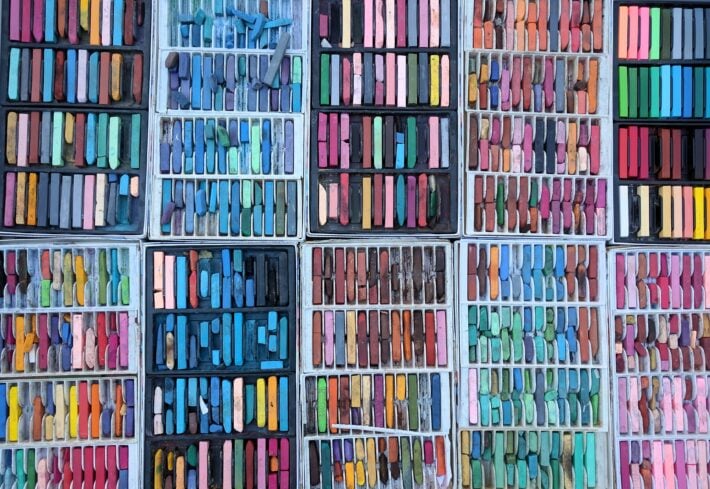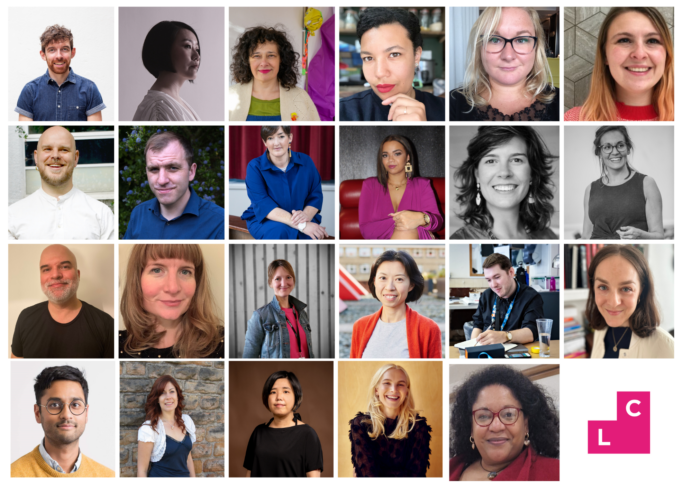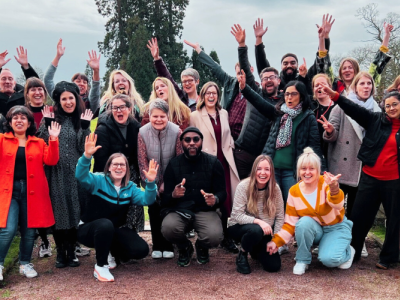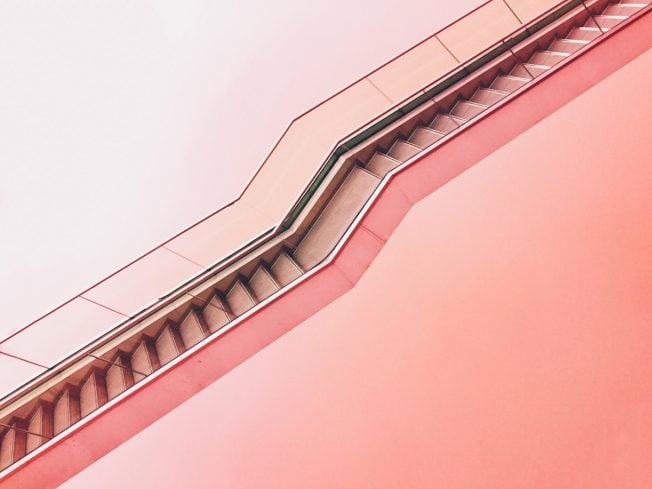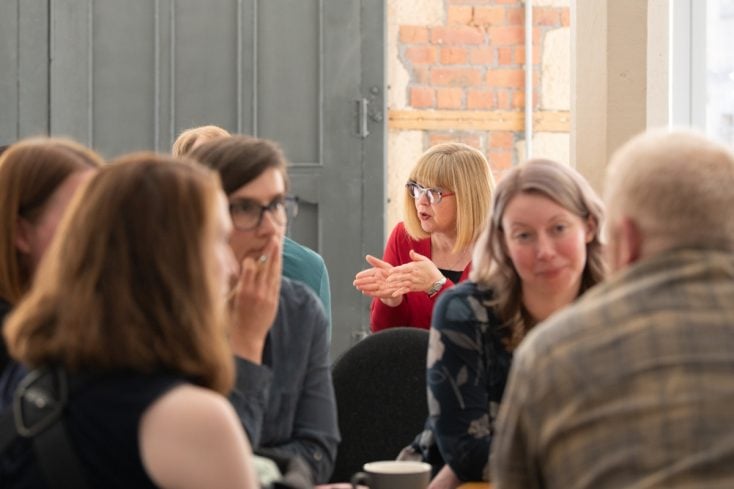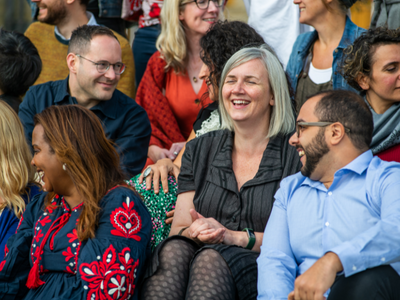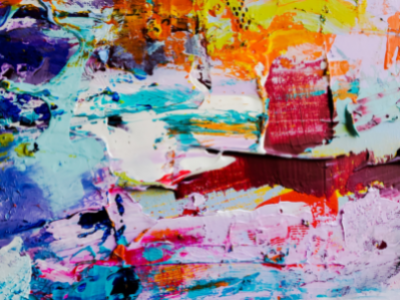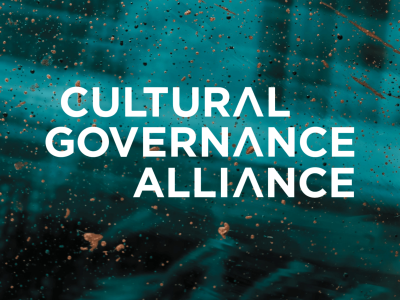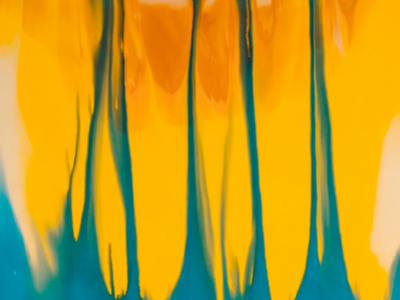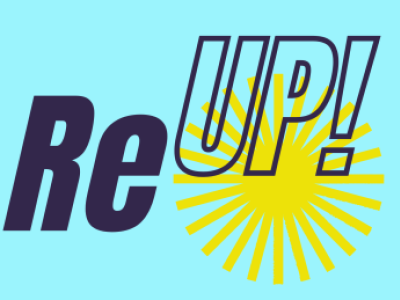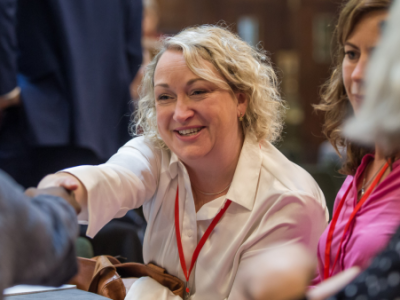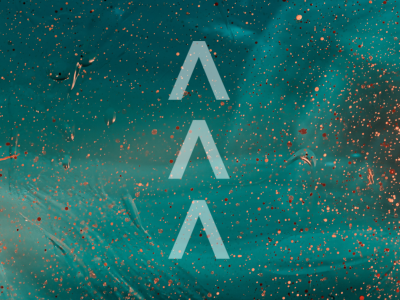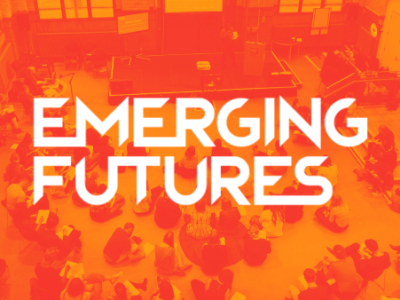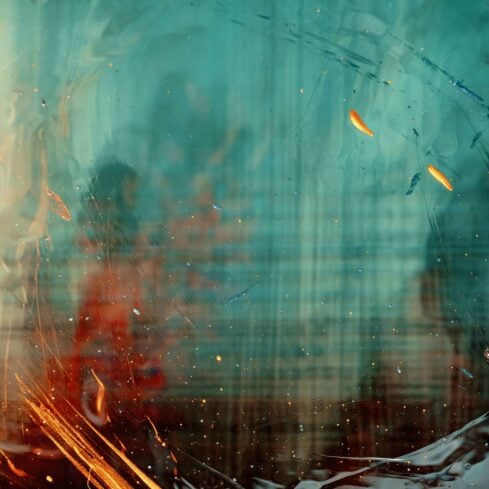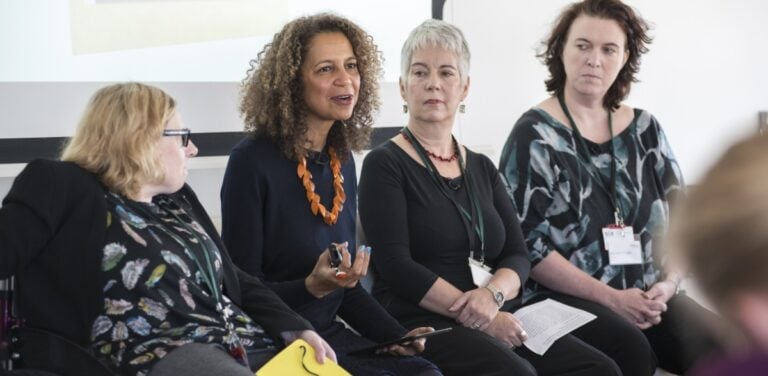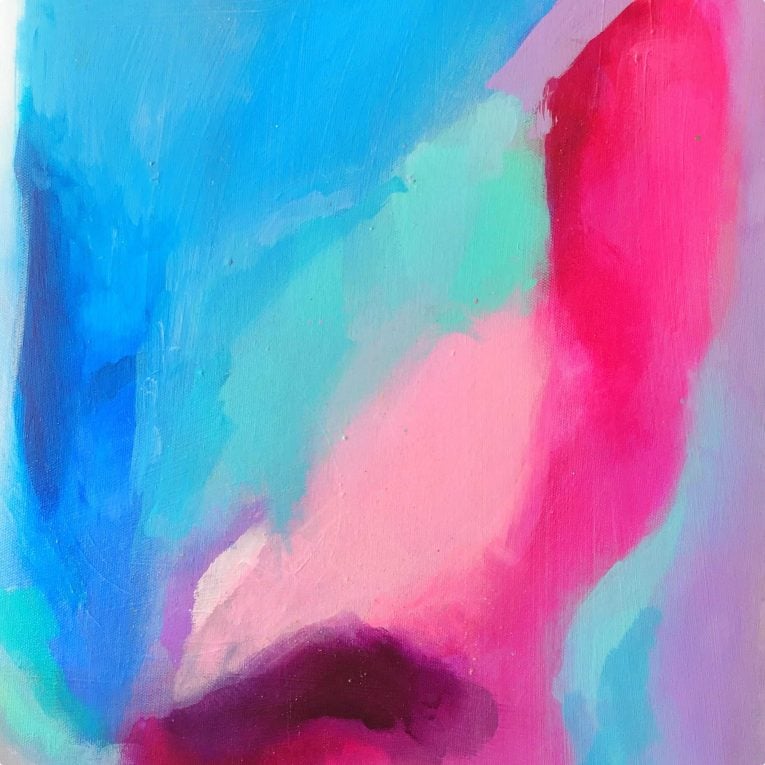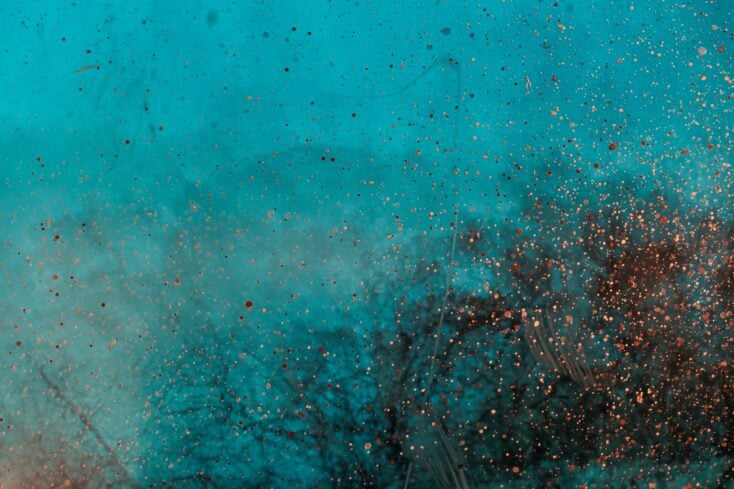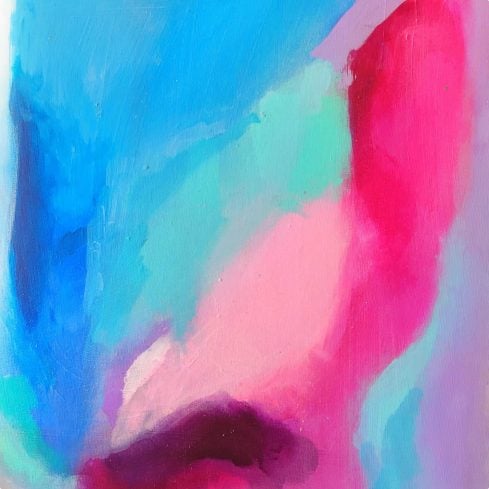Manifesting Values
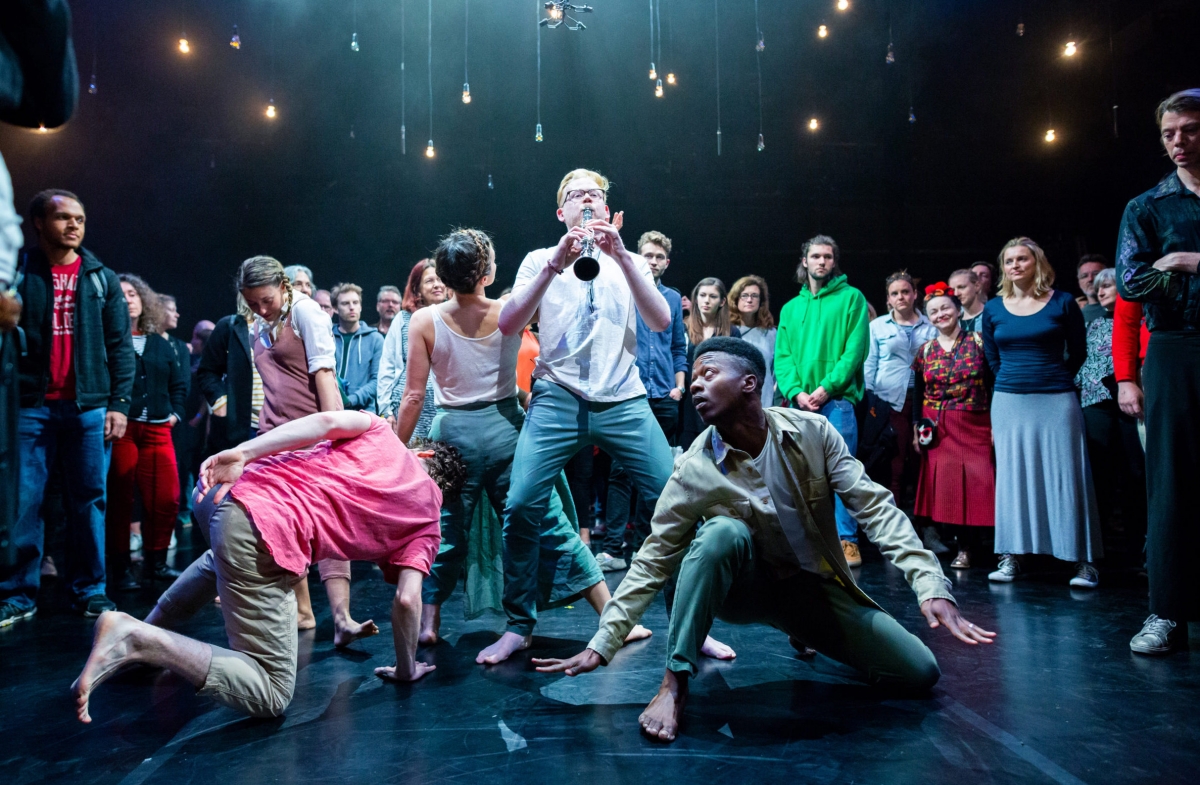
‘What do you actually do?’ I’m 54 and this has been such a continuous refrain from my mother it’s become a family joke, one that’s got more resonant in the current climate: ‘But you can’t go anywhere now, so what are you actually doing?’
I’m senior producer at Unlimited, a commissions programme for disabled artists, so the day job is getting money to artists to make exceptional work. However, there is no point funding the art without pushing the sector to be better placed to receive it, so we work with organisational allies.
Even after 30+ years of advocacy I still hear comments such as ‘oh, that kind of work isn’t really for our audiences’. This implies that a) disabled artists make one type of work (not true). And b) there is a singular audience with a singular taste (also not true). It’s lazy thinking – ableist – which comes from deep rooted ‘beliefs’ that disabled people can’t achieve and are somehow lesser. I can shout and scream about this (and do, frequently) although more effective approaches include; targeting festivals and events with product that fits their format, audience, timescale and budget; creating tools that help people acknowledge their barriers and blocks (see Cards for Inclusion) and increasingly, co-commissioning with other organisations, blending our credibility with theirs, reaching much further into multiple parts of the sector.
Alongside, we provide development support for artists making them skilled and prepared – all aimed at ensuring sustainable careers rather than one-off glory. Currently we are working on events linked to producing access riders, improving project documentation and, like the rest of the sector, how and when to digitise product.
I’m kind of in love with artists (thankfully my husband is one). The talent, the innovation, the way they help me see and experience everything differently.
I am continually surprised our arts sector is built with artists at the bottom. Most artists work on a freelance basis and are not directly employed by the sector, which needs their work to survive. Some dance companies have salaried managers and marketeers yet dancers on contracts; some theatre companies have no artistic directors, programming becoming linked to potential box office returns; some galleries set curators as king and invite artists for the occasional private view. I’d love to know what percentage of funding building-based arts organisations spend on artists and not air conditioning? It’s a complex picture but why place so little value in what, for me, is the very life blood of our industry?
This has been thrown into sharp relief with the Covid-19 government support packages – enabling those with salaries to be furloughed on 80%, whilst many artists are now reliant on food banks, having failed to meet the financial requirements for support.
I value artists. And this value has to translate into decision making, funding and respect.
Within Unlimited we ensure; commission selection panels include artists; artists expect to get paid for all work that they do for us and that access and expenses are covered in addition to a fee; and we provide as much feedback as we can, wherever we can. Our last main award round, with investment of over £550,000, could only support 9% of applications. When you disappoint as many people as we do – you better be prepared to tell people why.
Sync, a leadership development programme I co-founded with Sarah Pickhall in 2008, is rooted in a deep desire for disabled artists and artsworkers to understand their own value and values. We created the programme that we needed to go on. A space to not only get the best of leadership learning and insight but, essentially, to view it through a disability-specific lens. To not see the distorted views played out by the media and others, even more so with our new label of ‘vulnerable’ turning back 30 years of activism for equality. This vital learning is soon to be delivered online in Canada.
I volunteer 14 days a year to do stuff for free, and when it’s gone, it’s gone. It’s not for a halo – I can, I want to and I repeatedly learn more from it than I put in. I’m a proud member of two Boards; The Space and the Global Disability Innovations Hub. I’m learning from The Space about how to keep inclusion on the table when making time sensitive decisions with multiple stakeholders, particularly the ACE and BBC funded Culture in Quarantine commissions. From GDI Hub, about global strategies on inequality and power sharing through establishing open source responses, pivoting tech to create ventilators, PPE and more.
I’m also on both the Arts Council England Northern Area Council and National External Reference Group – getting right on in there and haggling for change. And I mentor a couple of folk – as nothing makes that change happen like people. With the advent of the Covid-19 crisis I’ve been linked in to other groups, learning from and contributing to the Disability Arts and wider cultural sector. These are all ways I can manifest my values.
A simple thing: I love to pass things on – through a meeting or something on Twitter. I try to schedule 30 mins each day to share; posts from others on social media or in private groups; information by email to those I think would find it useful. Ok, not always useful but the seals singing ‘Kiss From A Rose’ was funny…
I like fun. Posting random memes, undertaking a competitive Bob Ross paint-a-thon, dyeing my hair bright colours, I take enjoyment in life. Fun is a good distraction from experiencing pain (so are spreadsheets). It means I don’t take myself too seriously. I got my nose pierced at 47 when I finally realised I was the only person stopping me. Fun is for the sheer hell of it.
Now I don’t self censor much (and am known for excessive swearing as a result). Yet like everyone, I can’t do everything I want to all the time, I have to be selective.
All the stuff listed above sounds a lot and some days it feels a lot too. But not all days. Other days are about the greenhouse, the grandkids or learning to make dosas. As well as pain, I experience fatigue and have learnt valuable lessons about pacing myself; when and how I work most effectively thanks to this ‘gift’.
A bad day recently (we all have them) led to me crying to my coach, bleating that I wasn’t doing or giving enough, wasn’t on the front line. She rightly pulled me up. No, my job is not nursing. That’s not what I get value from or give value to. Both the NHS and the arts are important right now, it’s not and should not be a competition. You do what you can. And if you look after yourself you can keep on doing it for longer, and also do it better.
So to end with a some top tips:
- Stick to your values – know what matters to you and live it in everything you think, say and do
- Know what you need to do your best work – and get those conditions met (which includes being kind to yourself)
- Share what you know – now especially is not the time to be selfish
Oh and get a coach. They are great when you get too up yourself.
